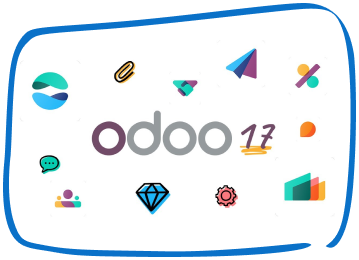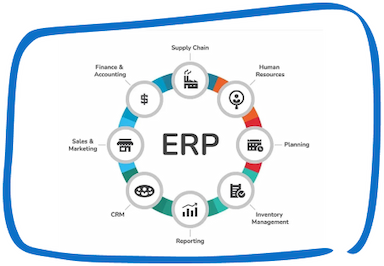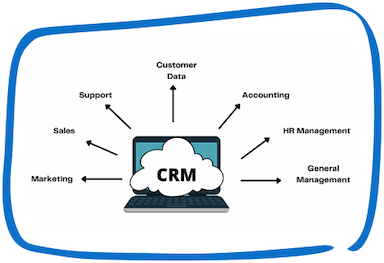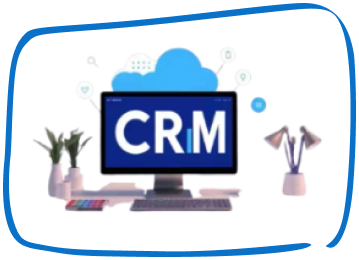Business technology evolves rapidly, and enterprise resource planning (ERP) systems stand at the forefront of this evolution. For organizations planning their digital strategy, understanding these emerging trends becomes crucial for making informed decisions.
Let's explore eight key developments shaping the future of ERP systems, particularly Odoo ERP, and their potential impact on business operations.
- Cloud ERP
Businesses now a days are increasingly shifting towards cloud based ERP systems like Odoo Cloud, leaving behind the traditional on premise systems. It is clear that organizations are choosing to adopt cloud ERP because of its advantages; quick implementation, lower costs, ability to grow, and less management of IT infrastructure.
The market is anticipated to grow from 72.2 billion U.S. dollars in the year 2023 to 130.5 billion U.S. dollars by the year 2028 portraying the increasing significance of the market.
In such scenarios, where most businesses are inclined towards flexible and remote work, cloud ERP facilitates edge computing - which is the data performed near the source rather than data processed in remote server farms. This approach ensures faster performance and enhanced security regardless of employee location.
Optimize Your Business Operations with Odoo ERP
Odoo ERP offers a fully integrated solution to manage all your business functions—CRM, inventory, accounting, HR, and beyond. Tailor it to your needs and scale effortlessly.
- Two-Tier ERP
No one is still installing a single ERP solution for the whole business. In its place, a more adaptable two-tier strategy has emerged. This allows even the most seasoned expert to create a corporate strategy that preserves the existing corporate ERP system, but uses specialized solutions such as Odoo ERP for more focused family members like branches or divisions.
Modern integration capabilities, including advanced APIs, enable seamless data flow between systems. This approach, supported by expert Odoo Customization services, proves more cost-effective and agile than forcing a single system across all operations. It's particularly beneficial for growing organizations, as noted by Gartner's recommendation to consider two-tier strategies for maximizing business benefits.
- Digital Transformation
Digital transformation continues to evolve, with Odoo serving as a cornerstone of this ongoing process. You can seek help from Odoo consultants to integrate digital technologies across all businesses operations, enhancing efficiency, revenue, and competitive edge while improving employee productivity and customer service.
The comprehensive nature of ERP makes it an ideal platform for digital transformation initiatives. Modern Odoo systems increasingly incorporate AI, IoT, and advanced analytics to drive innovation and efficiency, aligning with strategic business objectives.
- Other Technology Integrated With ERP
Modern ERP implementation goes beyond basic business applications. Working with an experienced Odoo Partner ensures seamless integration with emerging technologies. For instance, manufacturing clients can monitor equipment performance in real-time through IoT sensors, while logistics operations benefit from automated warehouse management systems.
E-commerce integration remains crucial, especially as online business expands. Odoo ERP's integration capabilities support end-to-end order fulfillment, streamlining everything from order processing to shipping management.
- Personalization
Latest Odoo solution stands out for its exceptional customization capabilities, moving away from complex coding requirements. Working with a skilled Odoo Customization specialist, businesses can now take advantage of low-code and no-code platforms to tailor their systems precisely to their needs. This accessibility empowers organizations to modify their ERP without extensive technical expertise.
Industry-specific solutions are becoming increasingly prevalent. As customer experience becomes paramount,Odoo UAE is helping businesses deliver personalized experiences through customizable dashboards and AI-powered interfaces. A notable trend is the integration of intelligent chatbots that can process user queries and access ERP data to provide immediate, relevant responses.
- AI-Powered Insights and Improvements
In 2024, artificial intelligence and machine learning are no longer optional add-ons but core components of Odoo ERP solutions. Leading businesses are implementing these technologies to enhance personalization and streamline business processes. The integration of generative AI is particularly revolutionary, offering new possibilities for system optimization.
Key benefits include:
- Enhanced Insights: With support from experts, businesses can now analyze vast amounts of operational and customer data more effectively. AI algorithms identify patterns and predict trends that would be impossible to detect manually.
- Process Optimization: For example, manufacturers working with Odoo can use machine learning to perfect just-in-time inventory systems, optimizing delivery schedules and reducing costs. Notably, early applications of generative AI in cloud migrations have shown potential 40% reductions in implementation time and cost.
- Predictive Analytics
The integration of AI in Odoo ERP reflects a growing demand for data-driven insights to improve both revenue and efficiency. As any experienced Odoo Partner will confirm, modern ERP systems are moving beyond historical analysis to embrace predictive capabilities.
Odoo ERP: The Complete Business Solution
Unify your business processes with Odoo ERP’s powerful and customizable suite of applications, designed to improve efficiency and drive growth.
This advanced functionality allows businesses to:
- Anticipate equipment maintenance needs
- Optimize inventory levels
- Forecast financial trends
- Predict customer behavior
- Improve workforce management
For example, Odoo Cloud users, especially maintenance organizations, can utilize previous records to forecast equipment failure before its occurrence which allows for planning of maintenance in advance. Likewise, the staffing department predictive analytics can also be used hence less predicting over staffing.
- Mobile ERP
In this age of digital transformation, mobile access has gone from being an optional feature to a basic requirement in an Enterprise Resource Planning solution. By working hand in hand with an Odoo Implementation Partner, it is now possible for all the teams across the organization to get access to critical information and functionalities no matter their physical locations and in real-time. This is because the operations of the organization extend beyond its physical in-house workers and caters for a variety of operations from warehousing to decision-making at the top management level.
The mobile capabilities of Odoo ERP include:
- User-friendly interfaces for common tasks
- Real-time data access and updates
- Expense and time tracking
- Workflow approvals
- Inventory management
- Sales order processing
This mobile-first approach, supported by Odoo Dubai consultants, enables improved productivity, faster data capture, and enhanced business agility. It's particularly valuable for organizations with remote teams or multiple locations across the UAE and beyond.
The evolution of ERP systems, particularly Odoo, continues to accelerate as businesses embrace digital transformation. By partnering with experienced Odoo Consultants like Penieltech and implementation specialists, organizations can leverage these trends to build more efficient, agile, and competitive operations. Whether through cloud adoption, AI integration, or mobile capabilities, the future of ERP promises even greater possibilities for business optimization and growth.
Final Thoughts
The ERP sphere is still undergoing changes offering unique ways of increasing business performance. There is a clear trend in one particular direction: ERP systems are getting smarter, cheaper and more profitable for doing business.
In light of these changes, especially with the robust Odoo ERP platforms and collaboration with implementation partners, organizations stand to achieve sustained growth and competitive edge due to the increasing digitalization of business environments. The crucial point is not only how these technologies are brought into the organization, but how the organization uses them to produce renewal and to generate valuation in the long term.
Speak with Our Team!
4.9 Stars
1k+ reviews on







